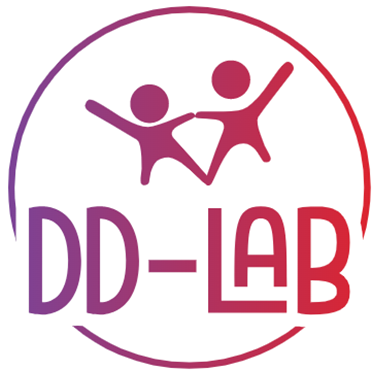Specific Learning Disorders
Research Area
Specific Learning Disorders
”The biggest mistake of past centuries in teaching has been to treat all students as if they were variants of the same individual and thus to feel justified in teaching them all the same subjects in the same way
H. Gardner
Our research group investigates specific learning disorders (SLD), with a particular focus on the cognitive and emotional mechanisms that influence students’ academic and social adjustment. A central goal of our work is to understand how cognitive, emotional, and motivational factors interact and contribute to individual differences in learning and well-being.
Our research activities focus on several key areas:
- Cognitive functioning in SLD: We analyze the cognitive profiles of students with specific learning disorders, with particular attention to the role of working memory and executive functions (e.g., inhibitory control, cognitive flexibility, planning) in supporting or hindering the learning process. We also explore how these mechanisms affect study strategies and the management of complex academic tasks.
- Emotional aspects and self-regulation: We study the role of emotions in the school life of students with SLD, examining how anxiety, perfectionism, self-esteem, and emotional regulation strategies impact their academic experiences. We focus especially on difficulties in managing performance-related emotions, which can intensify the challenges associated with learning disorders and affect psychological well-being.
- School and social contexts: We explore how students with SLD experience their relationships with peers and teachers, paying close attention to the emotional and social dynamics in educational settings. We also examine how school climate and the support they receive influence socio-emotional adjustment and learning motivation.
Through these lines of research, our group aims to deepen the understanding of the complex factors that shape the educational experience of students with SLD, and to promote inclusive and effective educational practices that respect individual differences.
Peer-Reviewed Journal Articles
Lievore, R., Cardillo, R., & Mammarella, I. C. (2025).
Anxiety in youth with and without specific learning disorders: Exploring the relationships with inhibitory control, perfectionism, and self-conscious emotions. Frontiers in Behavioral Neuroscience, 19.
Lievore, R., Caviola, S., & Mammarella, I. C. (2025).
Children with and without dyscalculia: How mathematics anxiety and executive functions may (or may not) affect mental calculation. Learning and Individual Differences, 121, 102693.
Lievore, R., Maffei, A., Sessa, P., & Mammarella, I. C. (2024).
A Comprehensive Investigation of Social Anxiety and Social Evaluative Stress in Autistic Children and Adolescents and Specific Learning Disorders. Journal of Autism and Developmental Disorders.
Lievore, R., Caviola, S., & Mammarella, I. C. (2024).
How trait and state mathematics anxiety could affect performance: Evidence from children with and without Specific Learning Disorders. Learning and Individual Differences, 112, 102459.
Caviola, S., Greiff, S., & Toffalini, E. (2024).
Learning disorders and difficulties: From a categorical to a dimensional perspective. Learning and Individual Differences, 113, 102490.
Donolato, E., Cardillo, R., Mammarella, I. C., & Melby-Lervåg, M. (2022).
Research Review: Language and specific learning disorders in children and their co-occurrence with internalizing and externalizing problems: a systematic review and meta-analysis. Journal of Child Psychology and Psychiatry, 63(5), 507–518.
Mammarella, I. C., Toffalini, E., Caviola, S., Colling, L., & Szűcs, D. (2021). No evidence for a core deficit in developmental dyscalculia or mathematical learning disabilities. Journal of Child Psychology and Psychiatry, 62(6), 704-714.
Mammarella, I. C., Caviola, S., Giofrè, D. & Szücs, D. (2018).
The underlying structure of visuospatial working memory in children with mathematical learning disability. British Journal of Developmental Psychology.
Giofrè, D., Borella, E., & Mammarella, I. C. (2017).
The relationship between intelligence, working memory, academic self-esteem and academic achievement. Journal of Cognitive Psychology, 29, 731-747.
Caviola, S., Gerotto, G., & Mammarella, I. C., (2016).
Computer-based training for improving mental calculation in third and fifth graders. Acta Psychologica, 171, 118-127.
Mammarella, I. C., Ghisi, M., Bomba, M., Bottesi, G., Caviola, S., Broggi, F. & Nacinovich, R., (2016).
Anxiety and depression in children with Nonverbal learning disabilities, reading disabilities, or typical development. Journal of Learning Disabilities, 49, 130-139.
Ghisi, M., Bottesi, G., Re, A. M., Cerea, S., & Mammarella, I. C. (2016).
Socioemotional Features and Resilience in Italian University Students with and without Dyslexia. Frontiers in psychology, 7:478.
Caviola, S., Mammarella, I. C., Cornoldi, C., & Lucangeli, D. (2014).
Precursors for solving written subtraction problems in second grade schoolchildren. Learning and Individual Differences, 36, 92-100.
Mammarella, I. C., Bomba, M., Caviola, S., Broggi, F., Neri, F., Lucangeli, D., & Nacinovich, R. (2013).
Mathematical difficulties in nonverbal learning disability or co-morbid dyscalculia and dyslexia. Developmental Neuropsychology, 38, 418-432.
Mammarella, I. C., Caviola, S., Cornoldi, C., & Lucangeli, D. (2013).
Mental additions and verbal-domain interference in children with developmental dyscalculia. Research in Developmental Disabilities, 34, 2845-2855.
Passolunghi, M. C., & Mammarella, I. C. (2012).
Selective spatial working memory impairment in a group of children with mathematics learning disabilities and poor problem-solving skills. Journal of learning disabilities, 45, 341-350.
Caviola, S., Mammarella, I. C., Cornoldi, C., & Lucangeli, D. (2012).
The involvement of working memory in children’s exact and approximate mental addition. Journal of Experimental Child Psychology, 112, 141-160.
Passolunghi, M. C., & Mammarella, I. C. (2010).
Spatial and visual working memory ability in children with difficulties in arithmetic word problem solving. European Journal of Cognitive Psychology, 22, 944-963.
Passolunghi, M. C., Mammarella, I. C. & Altoè, G. M. (2008).
Cognitive abilities as precursors of the early acquisition of mathematical skills during first through second grades. Developmental Neuropsychology, 33, 229-250.




